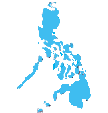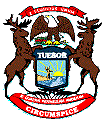 
 

|

 |
 |
Not many are aware of the unique resources available on the Philippines at the University
of Michigan. At one time, the University of Michigan was very active in the study of the Philippines.
Today, the University of Michigan is the home of an expansive library collection on the American colonization
of the Philippines.
|
|
|

The David J. Steinberg Philippine Collection: Professor Steinberg has donated his extensive
primary source materials on the Philippines to the University Library's special Philippine Collections.
The Steinberg collection focuses on the Japanese occupation of the Philippines during WWII. These materials
will greatly expand and provide continuity beyond the current collection which ends in the 1930s. A scholar
researching WWII and beyond will gain a balanced view of both the Philippine perspective and Japanese
point of view. Other materials in this collection include transcribed notes and audio tapes of interviews
conducted by Professor Steinberg with elites in the Philippines.
|
|
American-Philippines Relations Collections Over the past one hundred years or more, a large
number of University of Michigan faculty and alumni and other citizens of the state of Michigan have
played a decisive role in shaping relations between the United States and the Philippines. The Bentley
Historical Library has collected the papers of many of these men and women. This guide updates information
published in two previous guides to the library's Philippine-related manuscript collections, and provides
links to online finding aids that provide more detailed information about many of the collections. Many
of the collections contain visual materials, a selection from which is included in this guide.
|
|
The Labadie collection contains significant documentation from the Communist Party
of the Philippines and the National People's Army. Also covered by Labadie is the period of martial law
and the on-going struggle of the Moro Bangsa Army. This collection includes not only publications originating
in the Philippines but also publications generated by support groups residing in the United States, Europe,
and the Middle East. Representations of underground publications from the Philippines, Burma (Myanmar)
and Indonesia are currently being developed.
|
|
|

|

 
 

|